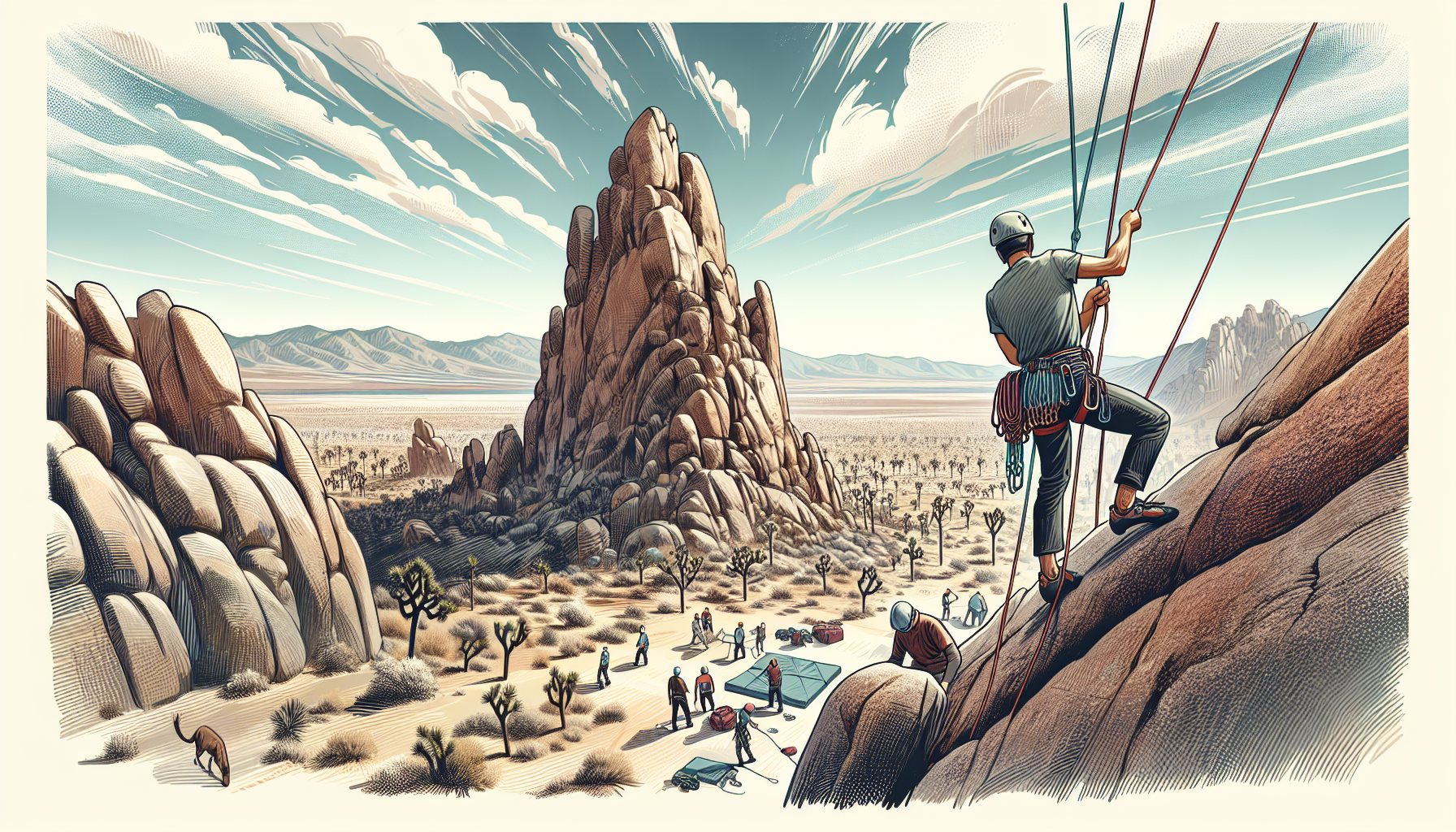
Hey there fellow climbers! ✌️
Man, I remember my first time rolling up to J-Tree like yesterday. I’d spent months climbing at my local gym, all psyched about the perfectly spaced bolts and color-coded routes. Then BAM – reality hit me right in the face when I got here! 😅

The Truth About J-Tree
So let me be real with you – if you’re expecting something like your gym, you’re in for a wild surprise! But honestly? That surprise turned out to be the best thing ever.
You know what’s crazy? We’ve got over 8,000 routes out here. I am not kidding! But here’s the thing – they’re not your usual gym-style setups. No, this is the real deal, raw and beautiful.
What You Get Here
Instead of those shiny gym walls, you’re looking at:
- Pure granite that’ll make your fingertips sing
- Cracks that eat up your gear (and sometimes your fingers too! 🤣)
- Views that’ll make you forget about posting on Instagram
- The occasional sketchy anchor that’ll test your nerve
My First Time Here (Learn From My Mistakes!)
Oh boy, my first trip was a disaster! Showed up with just my sports climbing gear and a dream. Big mistake! Huge! I had to watch everyone else having fun while I sat there with my tail between my legs.
Here’s what I wish someone had told rookie me:
- Bring ALL your gear (seriously, ALL of it)
- Pack more water than you think you need
- Don’t even THINK about coming in the summer
- Make friends with the locals (we don’t bite!)
When Should You Come?
Tell me about when I thought climbing in July was a good idea… Spoiler alert: It wasn’t! 🥵
Best times to visit:
- October through April (perfect sending weather!)
- Early mornings (nothing beats that desert sunrise)
- Late afternoons (if you don’t mind a bit of heat)
Just avoid:
- Summer (unless you’re part lizard)
- Holiday weekends (it gets CRAZY busy)
Need Some Help?
Look, there’s no shame in getting some guidance. I did! And you know what? Some of my best climbing buddies are guides I met here. You can try:
- Local guides (they know all the secret spots!)
- Climbing schools (worth every penny)
- Ranger programs (these folks are awesome)
- The local climbing crew (seriously, just say hi!)
Random Tips I’ve Learned
After eating dirt (literally) a few times, here’s what I know:
- The weather here changes faster than my ex’s mood
- That “quick approach” is never quick
- The grades? Yeah, they’ll humble you real quick
- The local climbers are super friendly
Want to Give It a Shot?
Listen, if you’re thinking about coming out here:
- Get your trade skills dialed (or bring a friend who has them)
- Find someone crazy enough to climb with you
- Get a guidebook (don’t rely on Mountain Project alone)
- Book your camping spot way early (trust me on this one!)
Real Talk Time

Look, J-Tree isn’t fancy. It’s not convenient. Sometimes it’s not even that comfortable. But you know what? It’s real. It’s raw. And once you get a taste of that J-Tree magic, you’ll never be the same.
I remember sitting at Hidden Valley after my first successful lead here, watching the sunset paint the rocks orange, and thinking “Yeah, this is what climbing’s all about.”
Before You Go…
Hey, if you’re planning a trip out here and want some beta, hit me up! I’m usually around Hidden Valley, probably failing on my project or sharing snacks with the ravens (those little thieves are everywhere! 🦅).
And remember – whatever you pack in, pack it out. These rocks have been here way longer than us, and they’ll be here long after we’re gone. Let’s keep ’em beautiful for the next generation of climbers!
Catch you on the rocks! And if you see someone hanging upside down in a crack at Intersection Rock… yeah, that’s probably me! 😂
Peace out! ✌️
P.S. – Seriously, bring more water than you think you need. I’m not kidding about that part!
P.P.S. – If you see a chalk bag hanging from Fire Pole Rock… it’s mine. I keep forgetting it there! 🤦♂️
